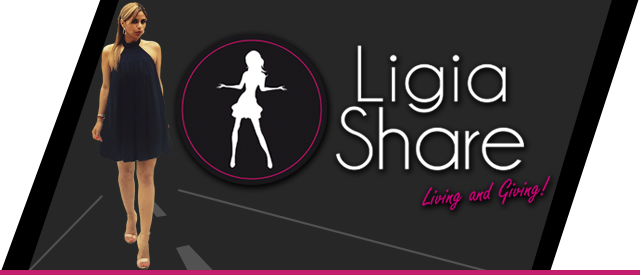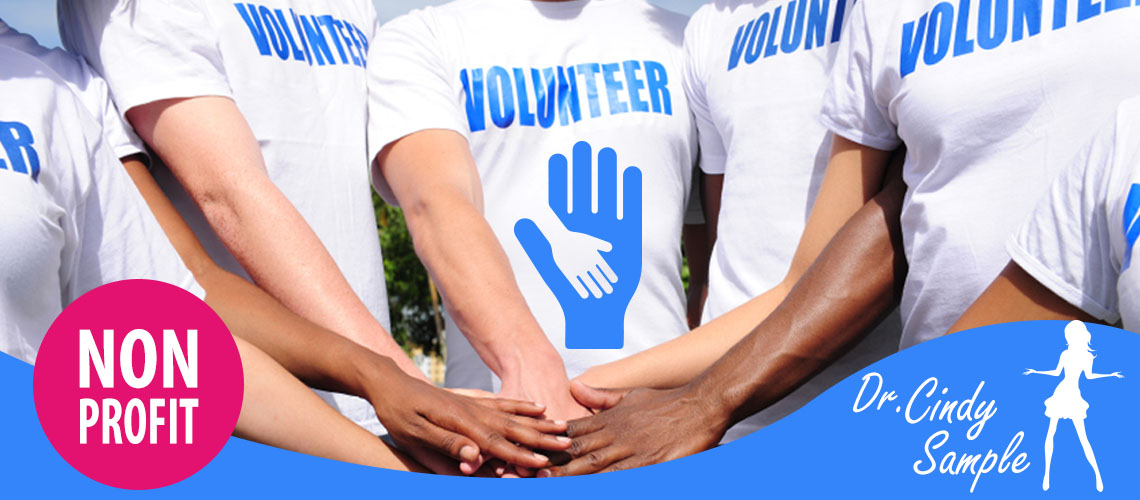NonProfit Organization by Cindy Sample, LCSW, PhD.
During this week of Non Profit Awareness we should take an opportunity to reflect on the value of the work and accomplishments of the non-profit sector has had on us as a country as well as individually. In October 2014, Brice S. McKeever and Sarah L. Pettijohn published findings from their study into the impact non-profits have on our economy. The highlights of this study show:
- Approximately 1.44 million nonprofits existed in the US and number continues to grow.
- The nonprofit sector contributed an estimated $887.3 billion to the US economy in 2012. This accounts for 5.4 percent of the country’s gross domestic product.
- Of the nonprofit organizations registered as 501(c)(3) public charities accounted for just over three-quarters of the nonprofit sector’s revenue ($1.65 trillion) and expenses ($1.56 trillion) and more than three-fifths of nonprofit assets ($2.99 trillion) in 2012.
- More than a quarter of adults in the United States volunteered with an organization in 2013. Volunteers contributed an estimated 8.1 billion hours in 2013, representing approximately $163.0 billion worth of work.
Clearly non profit organizations are significant to the economy and as significant are the number of non profit groups that exist whose primary focus are on charitable acts and services. It begs the question then, what compels individuals and groups to acts of altruism? And, if the number of philanthropic non profit groups are as large as the Brice/Pettijohn studies suggest, what compels human beings to engage in acts of charity? How do we nurture that propensity for philanthropy in our children and youth? How can we support a mindset of giving and charity in our young people today?
Many current psychological studies today focus on the timeless question: what creates for people true happiness and fulfillment? Do acts of altruism and philanthropic contribute to a person’s sense of purpose and happiness? We know pleasure is a central motivator in our lives. And recent brain studies demonstrate that most of our experiences in our lives activate an anatomically and biochemically defined circuit in the brain. These brain studies show that the pleasure circuit in the brain or neurotransmitter called dopamine plays a crucial role in motivating us to engage in activities that elicit feelings and experiences of pleasure. So what does all this scientific research study prove?
We have scientific evidence that acts of charitable giving increases self-image and a person’s self-confidence. Thus, it is recommended parents begin engaging their children in regular acts of charity between the ages of 3-5 years old. Over time, a child who is regularly participating in acts of charity develops a stronger sense of self-confidence. A strong self image is fostered by one’s growing understanding that, through altruistic acts, we have the power to make an impact on the world. It inspires a true sense of community as well as a strong self-image.
When individuals or agencies are recognized for their altruism, we hear over and over these individuals say that they personally received more out of the charitable act that they extended. Many who are drawn into philanthropy initially engage in acts of charity as a way of feeling good about them, as a way of acting as a “do-gooder.” Over time what they report getting out of the charitable act almost always exceeds what they feel they have contributed.
If acting charitably can directly impact our self-image, build our sense of community and personal empowerment as well as chemically alter our brain manufacturing a sense of pleasure and joy, how can we ignore altruism as a significant gateway to personal development and growth for our children and ourselves? When considering these findings it seems clear; let’s get out there and do some good! How do you start? Find a non-profit group whose mission and service population aligns with your own passions and beliefs and request to join their efforts. Share your talents and gifts with a non-profit organization established and ready to make a difference. It will change you in more ways than you can imagine.
8501 Brook Road
Mclean, VA 22102
Phone: 571-218-6115
E-Mail: cindy.sample@yahoo.com
Web: www.cindysampletherapy.com
References:
McKeever, Brice S., Pettijohn, Sarah L., The Nonprofit Sector in Brief; 2014., Public Charities, Giving and Volunteering, October, 2014.

